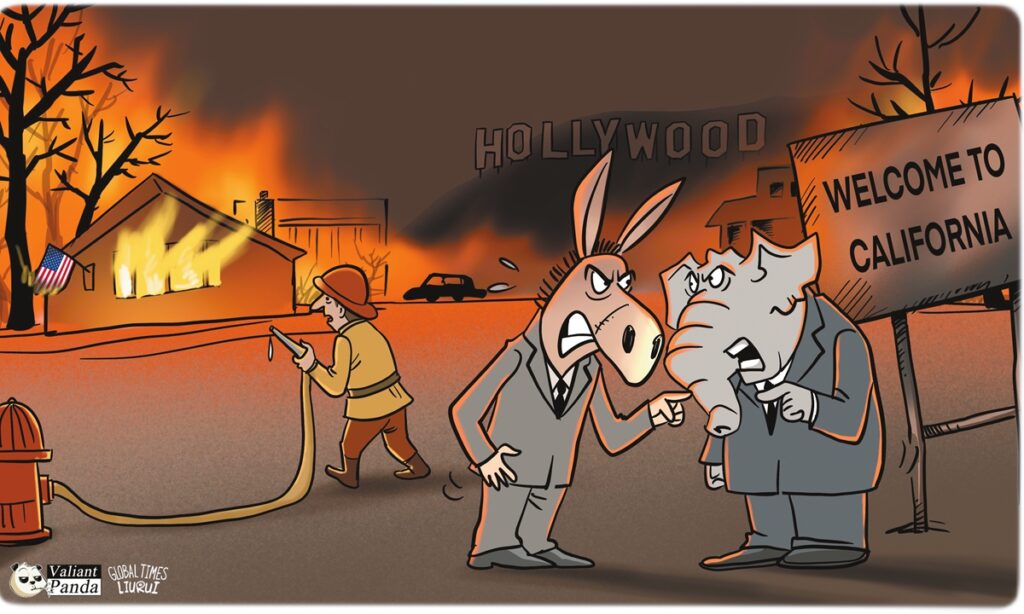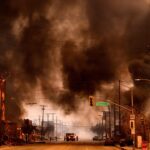California’s wildfires burn almost every year, but this time, US media claimed they are painting scenes of an “Armageddon.” At least 24 people are believed to be dead and more than a dozen remain unaccounted for as wildfires continue to rage across Southern California, according to US media reports.
In a Monday piece titled “L.A.’s wildfires have leaders fighting on two fronts: Nature and politics,” the Washington Post noted that the Democratic leadership in the state is under political attack from the opposition, rather than receiving “words of sympathy or pledges of rebuilding.”
The Washington Post has found a problem, but it’s not complete.
The haunting images of the 2023 Hawaii wildfires are still vivid in people’s minds. During California’s latest crisis, it feels as though the US is watching history repeat itself without taking action.
Since 1983, the US National Interagency Fire Center has documented an average of approximately 70,000 wildfires per year within the country.
This staggering figure should, in theory, lead to a well-organized and smoothly functioning firefighting system. Yet, when wildfires occur in the US, chaotic scenes continue to unfold.
In Los Angeles – one of the wealthiest cities of the world’s richest country – fire hydrants have been found to have little to no water flowing out, leaving many residents powerless as the flames ravage everything in their path.
It is lamentable that, according to reports from major US media outlets, many disaster victims seem to have resigned themselves to their fate.
A recent Politico article mentioned that when the author asked victims whom they blamed, they pointed to the wind, to God, to population growth, or to the way Californians tucked their homes into the foothills, before they think of lack of investment in infrastructure or the fire hydrants that ran dry.
Americans are suffering because the country has lost the ability to unite and transcend divisions in times of crisis. Both parties are engaged in finger-pointing. The Republican side labels California leaders as “incompetent,” and blames DEI (diversity, equity and inclusion) initiatives, as well as female firefighters of color and lesbian firefighters. Meanwhile, the Democratic Party blames climate change and pushes back against the Republican attempt to “politicize” the fires.
Yet, there is little effective discussion on how to resolve this ongoing crisis, what feasible solutions are available, or how the government will strengthen its ability to prevent and respond to natural disasters in the future. They fight each other amid the chaos of the fire, and in every other challenge they face nowadays.
A society that should be uniting in the face of this crisis is instead being torn apart by constant blame and shifting responsibility, even as the fires continue to rage. As a result, some observers argue that the California wildfires were not just a natural disaster, but rather a man-made catastrophe.
If American politicians were willing to rethink their approach to crises, this wildfire could serve as an opportunity to heal the nation’s deep political divisions. It should also prompt America to set aside its ideological biases, stop fixating on self-made “threats,” and instead focus on real-world dangers like extreme weather – issues that demand global unity. To make this shift, the US must champion cooperation.
GT




